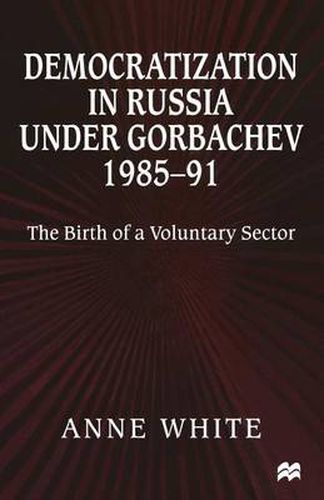Readings Newsletter
Become a Readings Member to make your shopping experience even easier.
Sign in or sign up for free!
You’re not far away from qualifying for FREE standard shipping within Australia
You’ve qualified for FREE standard shipping within Australia
The cart is loading…






This title is printed to order. This book may have been self-published. If so, we cannot guarantee the quality of the content. In the main most books will have gone through the editing process however some may not. We therefore suggest that you be aware of this before ordering this book. If in doubt check either the author or publisher’s details as we are unable to accept any returns unless they are faulty. Please contact us if you have any questions.
Self-help organizations and charities were the most numerous, but least-studied of pressure groups to emerge during perestroika . This book examines the social exclusion experienced before 1985 by non-working citizens, studies the pre-1985 disabled people’s movement and its numerous unofficial, but non-dissident organizations, discusses why the Gorbachev leadership adopted the non-Soviet concept of ‘charity’, analyses the failure of local authorities after 1985 to stave off pluralism and defeat the voluntary organizations, and assesses how successfully the latter built the foundations of a civil society.
$9.00 standard shipping within Australia
FREE standard shipping within Australia for orders over $100.00
Express & International shipping calculated at checkout
This title is printed to order. This book may have been self-published. If so, we cannot guarantee the quality of the content. In the main most books will have gone through the editing process however some may not. We therefore suggest that you be aware of this before ordering this book. If in doubt check either the author or publisher’s details as we are unable to accept any returns unless they are faulty. Please contact us if you have any questions.
Self-help organizations and charities were the most numerous, but least-studied of pressure groups to emerge during perestroika . This book examines the social exclusion experienced before 1985 by non-working citizens, studies the pre-1985 disabled people’s movement and its numerous unofficial, but non-dissident organizations, discusses why the Gorbachev leadership adopted the non-Soviet concept of ‘charity’, analyses the failure of local authorities after 1985 to stave off pluralism and defeat the voluntary organizations, and assesses how successfully the latter built the foundations of a civil society.